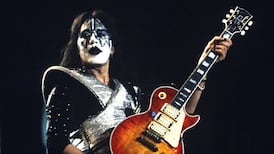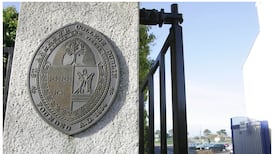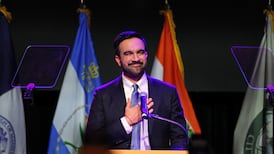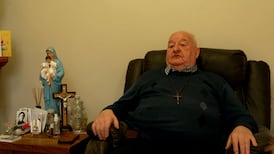BORIS FYODOROV, who has died aged 50 following a stroke, was one of a generation of economists who tried and failed to establish a free-market democracy in post-Soviet Russia.
Economics was always a more familiar terrain for the young academic than politics and, though he represented Russia at the World Bank and rose to the position of deputy prime minister under president Boris Yeltsin, he baulked at the spectacle of his colleagues feeding from the self-replenishing trough of government contracts.
Born in Moscow, Fyodorov studied economics at the Moscow Finance Institute. In the 1980s, he entered government service as a currency expert at the State Bank of the Soviet Union. He later moved to the Institute of World Economy and International Relations, where he completed his PhD in 1989.
In 1990 he became the finance minister of the Russian Soviet Republic and developed the financial part of Mikhail Gorbachev's ill-fated 500 days programme, an early but abortive attempt to instil free-market principles in the command economy. He promoted laws that attempted to regulate banks and companies.
Although in December 1992 he was appointed deputy prime minister in Yeltsin's cabinet, the ardent free-market reformer hit his peak in 1993 as finance minister in the government of Yegor Gaidar, the prime minister who threw the newly created Russian Federation into a hyper-inflationary crisis by liberalising prices at a stroke.
Fyodorov described his president as a street fighter whose sole ambition was to get power. Yeltsin, he said, showed a total lack of understanding about the economy and used reformers such as himself only in times of crisis.
As the business of self-enrichment became more frenzied, Fyodorov headed for the exit. He was openly critical of the infamous "loans for shares" scheme in which state assets were sold at a fraction of their market worth to cronies in rigged auctions.
When Gaidar resigned, Fyodorov formed his own parliamentary factions that combined market reforms with the patriotic duty of supporting the war against Chechen separatists. He was re-elected to the Duma in December 1995.
One of the 200 articles and books he published was a volume of blank pages entitled The Economic Achievements of the Chernomyrdin Government. This administration of the 1990s had replaced reformers such as Fyodorov.
He returned to government briefly in March 1998 as the head of the state tax administration, but was dismissed after attempting to extract back-taxes from Gazprom, the state-controlled energy giant.
He was a successful banker in his own right, co-founding with an American banker the United Financial Group in 1994, an investment bank which was bought by Deutsche Bank in 2003.
From 2000 he worked independently, with directorships at three of Russia's biggest companies, Gazprom, Sberbank and RAO-UES.
Fyodorov's other passion was the pre-revolutionary mansions of Moscow, which had survived Stalin's grandiose redesigns only to fall victim to soaring property prices.
His wife, Olga, and their two children, survive him.
• Boris Grigoryevich Fyodorov: born February 13th, 1958; died November 20th, 2008.







